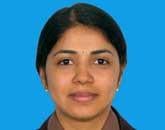Someone once said, “Live your life and forget your age, it’s just a number anyway”. Exactly! It’s about “adding life to time” by improving the quality of life of the elderly. It’s about making them independent, vital, and more importantly physically and mentally healthy.
The challenge is to persuade our senior citizens to stay healthy and feel good about themselves. The following are a few recommendations on early or regular screening to prevent complications and keep our parents or grandparents safe and healthy.
- To have a check on weight gain. With increasing age, there will be hormonal changes leading to decreased metabolism and increased fat deposition, which could be a trigger for many health issues.
- Hypertension (high Blood Pressure_BP) is one of the risk factors for cardiac or brain stroke, kidney disease, and eye (retinal) issues. So, blood pressure has to be monitored regularly among the elderly. An annual recording of BP by a health care provider is recommended to a normal person and more often if BP is higher than normal or has other risk factors.
- Eye check at regular intervals (at least annually) for issues that are common with age such as vision issues, cataracts, glaucoma, and diabetic or hypertensive retinal complications is very important to restore and maximize vision.
- Hearing gets impaired in elderly people as age advances and is mostly treatable if screened and sought help promptly. So please help our seniors overcome the stigma and have the hearing tests (audiogram, etc.) done by an audiologist or ENT doctor if they have trouble hearing.
- With old age, comes weak bones (osteoporosis) and need prompt attention to avoid fractures (especially hip fractures with simple falls). It is better to have a baseline bone density test done as it will affect the treatment, especially among elderly women (post-menopausal). It is also advisable to consult your doctor for calcium supplements and Vitamin D levels testing and supplementation.
- Fall prevention facilities at home: As mentioned above, elders are prone to sustain fractures, or head injuries very easily even with trivial falls. A few changes made at home to ensure safety, especially in bathrooms, bedrooms, or stairways, can prevent falls.
- Regular Dental checkups are also advisable to maintain proper oral hygiene and dentition. Dental caries could be a focus of infection in the elderly. Gum disease and loss of teeth may intervene with proper eating and nutrition.
- Blood Tests:
- Complete Blood Count or Hemogram: to Know the Hemoglobin level which is an indicator of anemia.
- Blood Sugar and HbA1c testing is advisable once a year or at least once in 2-3 years if no prior history or family history. However, frequent testing (once in 3 to 4 months) is required if known diabetic and on treatment or have risk factors.
- Cholesterol Levels (Lipids: total cholesterol, triglycerides, HDL/good cholesterol, and LDL/bad cholesterol) screening is recommended for all the elderly as high cholesterol, triglyceride and LDL levels are major risk factors for heart attack and can be easily treated with diet restrictions and medications.
- Thyroid Hormone Tests: Thyroid hormone problems can be a cause of fatigue, hair loss, weight gain, bowel disturbances, depression, anxiety, and sleep disturbance. So, screening for thyroid hormones is advised at least once in 5 years, especially in women.
- Cancer screening:
- Colon or Rectal (large intestine) Cancer: risk is high after the age of 45 years. Yearly fecal occult blood testing (to test any blood in the stools which is not evident to naked eye) is advised between 45 to 75 years of age.
- Prostate Cancer: Screening for Prostate Specific Antigen (PSA) is advised in men after the age of 55.
- Breast and Ovarian Cancer: Regular breast examination including manual examination, breast ultrasound or mammogram, and lower abdominal ultrasound is advised every 1-2 years or as advised by the treating doctor. Screening for serum ovarian cancer markers and breast cancer genes, especially with a strong family history is advised in women above 40 years as the risk of these cancers increase with age.
- Cervical or Vaginal Cancer (women’s private parts): Pap smears are recommended for women every 3 years, a Human Papilloma Virus (HPV) test every 5 years, or both, up to the age of 65.
Additionally, vaccination is as important in the elderly as in the children.
- People above 65 years old must get pneumococcal vaccine to protect against pneumonia.
- Also advised is the shingles (Herpes Zoster) vaccine for those over the age 50 and,
- Almost all elderly should get an annual flu shot.
Most importantly, always be in touch and have regular follow-up with your parents’ or grandparents’ family physician who will holistically approach them and refer them promptly to higher specialties if the need arises. Remember, “PREVENTION IS ALWAYS BETTER THAN CURE.”


Comments should be on the topic and should not be abusive. The editorial team reserves the right to review and moderate the comments posted on the site.
MEDICAL NEEDS IN THE ELDERLY , IS VERY IMPORTANT TOPIC. FAMILY MEMBERS WILL HELP RATHER THEITR CHILDREN SHOULD ACCOMPANY THEM FOR REGULAR CHECKUP. MORAL SUPPORT WILL WORK LIKE BOOSTER. LETUS MAKE OUR FAMILY A HAPPY FAMILY. WE SHARE JOY AND SORROW TOGETHER.